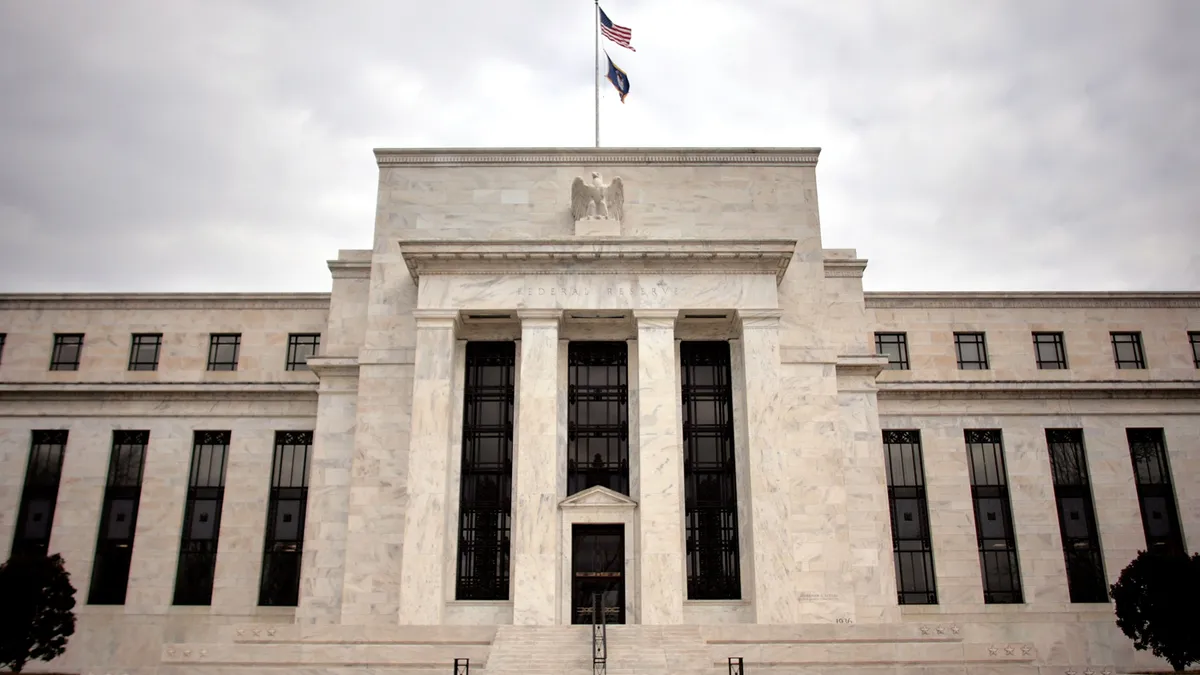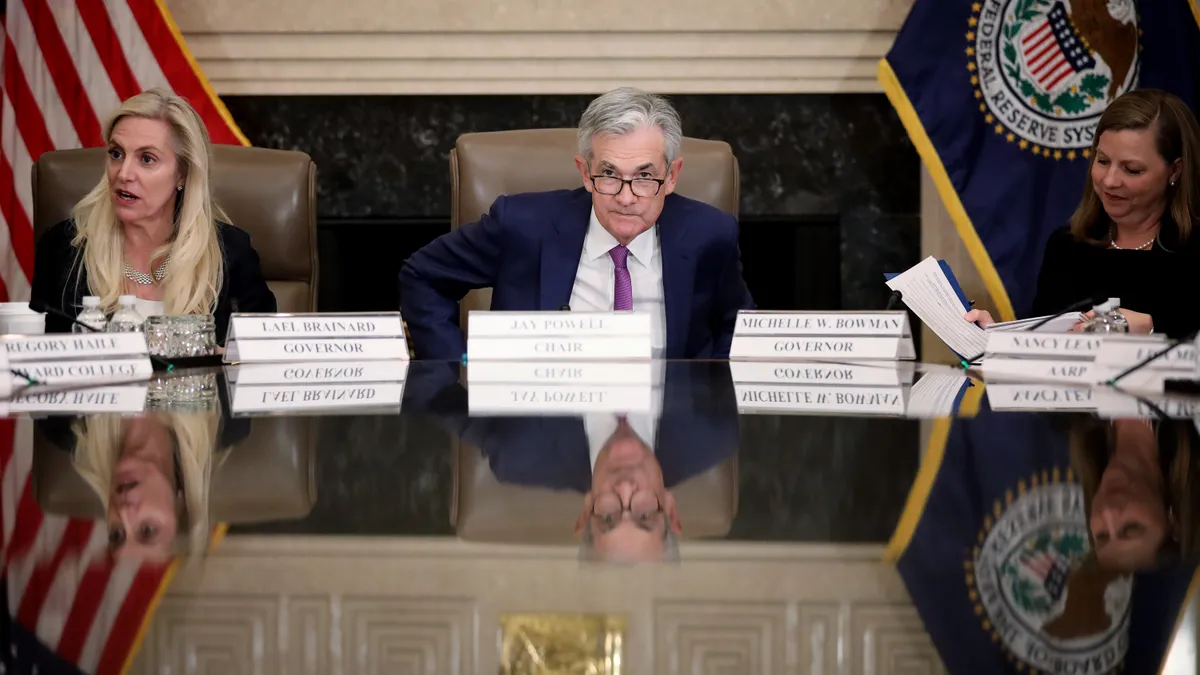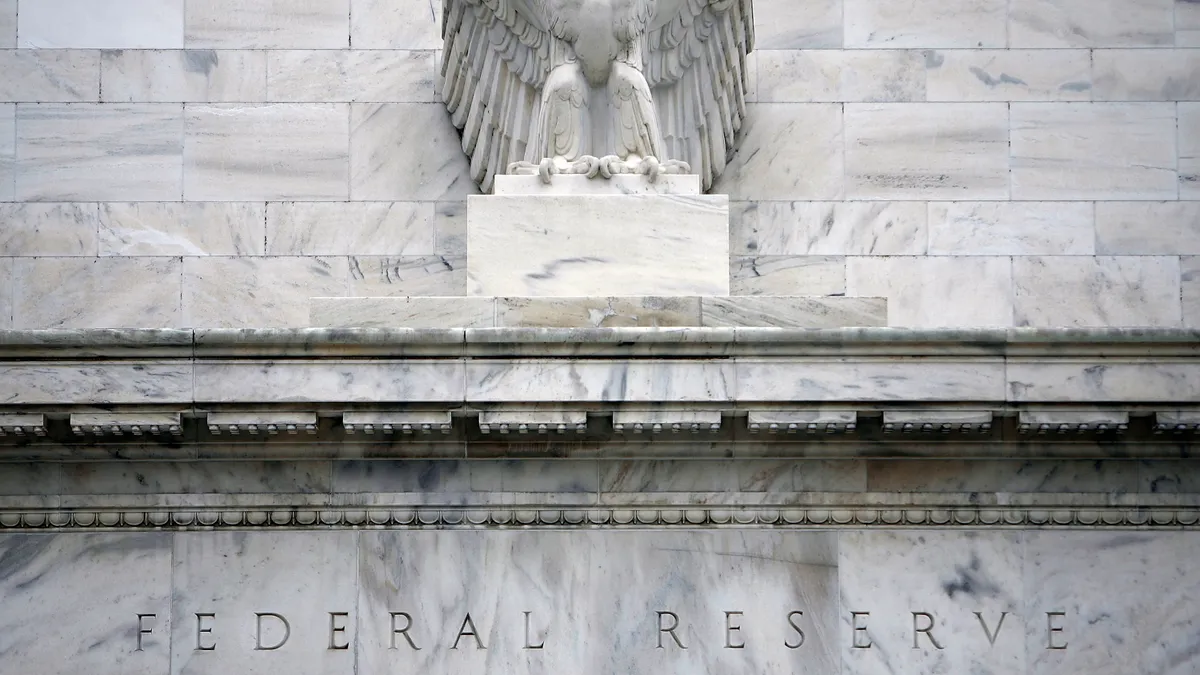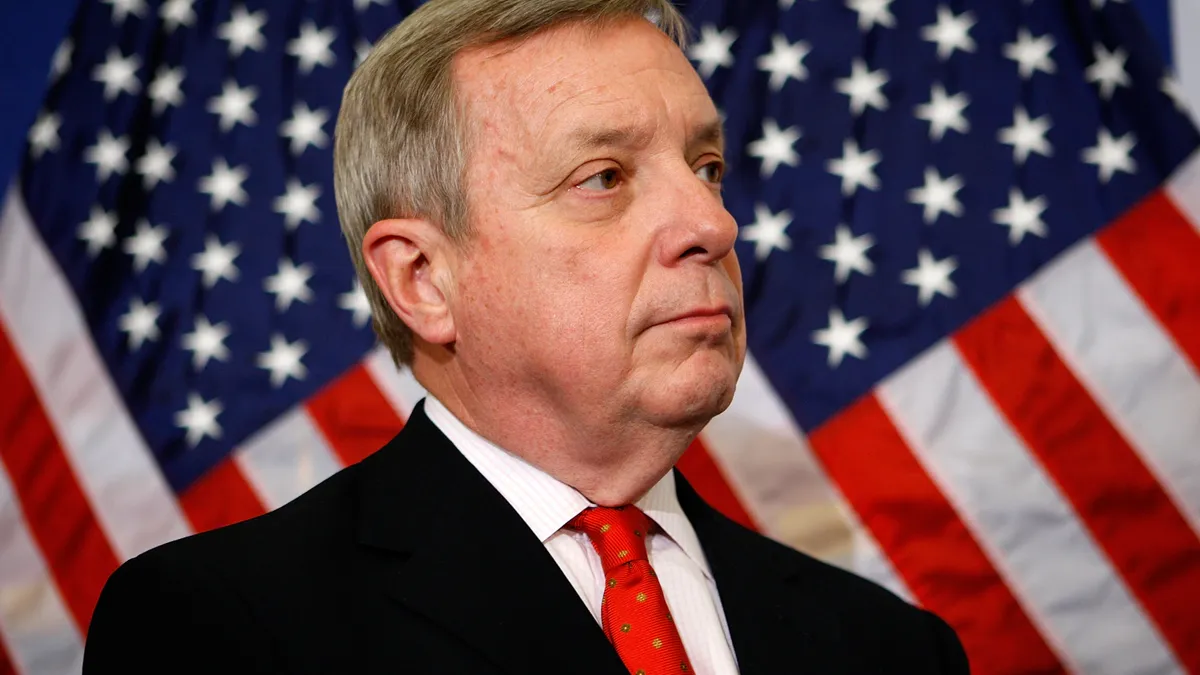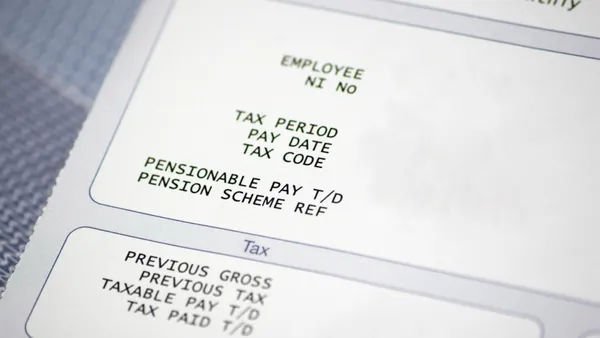Under pressure to cut debit card fees paid by merchants to the big card network companies like Visa and Mastercard, the Federal Reserve Board Friday proposed clarifying rules on the fees, but separately stood pat on its cost basis for an existing debit card fee cap.
The Federal Board made the regulatory proposal in a Friday press release to clarify that merchants must have the choice of sending transactions over two separate networks, the agency said. Merchants argued in statements this week, and in the past, that they don't have network choices despite regulations requiring it. Merchants also contend the lack of competition keeps debit interchange, or ‘swipe,' fees, higher than they otherwise would be.
The central bank said in its statement the proposal was prompted by evidence that all too often, merchants have only one network option — especially for online purchases, also known as "card-not present" transactions.
While it may have been tough technologically to implement two network options when the rule was issued in 2011, that's not the case now, the Fed said.
"Although technology has subsequently evolved to address these barriers, data collected by the Board and information from industry participants indicate that two unaffiliated networks are often not available to process card-not-present debit card transactions because some issuers do not enable two networks for those transactions," the Fed said in its Friday statement.
The Board views these clarifications of "existing requirements as necessary in light of information indicating that often only one network is enabled for such transactions," the Fed added in the statement.
Dodd-Frank effect
In 2010, the Dodd-Frank Wall Street Reform and Consumer Protection Act gave the Fed authority to impose debit card regulations on card-issuing banks with $10 billion or more in assets. Merchant coalitions and the card network companies fought over the debit and credit card fees for years before that law was passed, and they remain locked in that battle today.
The bickering has escalated since Democrats gained control of the White House and Congress, with Senate Majority Whip Dick Durbin, D-IL, being particularly vocal about what he calls a Visa-Mastercard "duopoly" that raises costs for merchants and consumers alike. Durbin's March criticisms of the companies were a prelude to Visa and Mastercard deciding earlier this year, for the second consecutive year, not to raise credit card fees, which aren't subject to caps. Durbin was the namesake for the 2010 Dodd-Frank amendment that led to the fee cap.
Last month, two North Dakota retail groups, aligned with like-minded national organizations, filed a lawsuit against the Fed in federal court in that state, claiming the Fed has failed to properly enforce the federal law capping debit card fees. Under the law, the Fed is required to perform a biennial survey to review card issuer banks' costs that are the basis for the existing fee cap, and to reset it, if necessary.
The Fed has left the cap unchanged since 2011 when it was first set the cost basis. In its Friday release, the Fed also announced it is leaving the cost assessment, based on a survey of 2019 data, untouched yet again this year. Nonetheless, it suggested more potential for a change.
The Board will continue to review the regulations that address "interchange fees for certain electronic debit transactions in light of the most recent data collected by the Board ... and may propose revisions in the future," the May 7 statement said.
The federal agency invited the public to comment on its proposal to clarify the regulation's terms regarding the network choices for routing debit transactions.
While merchant organizations welcomed the Fed proposal, they noted the Fed's 2019 findings showed a lack of competition in debit processing. Specifically, the Merchants Payments Coalition (MPC) in a Tuesday press release said the Fed's biennial cost survey showed the networks operated by Visa and Mastercard dominated debit transactions in 2019 by processing two-thirds of such transactions.
"The lack of routing ability has cost retailers billions of dollars, and that's an added expense small businesses can't afford as they work to recover from the economic impacts of COVID-19," said National Retail Federation (NRF) Vice President Leon Buck in a Friday NRF press release. "NRF has raised this issue with the Fed repeatedly, and we are glad to see the Board of Governors take action. This move will help bring about the competition that is needed to bring these fees under control.
The organizations criticized the Fed's biennial survey keeping the cost basis for the fee cap unchanged. "The Fed was required to regularly review these fees and was expected to adjust them if the cost of processing transactions went down," Merchants Payments Coalition (MPC) Counsel Doug Kantor said in the Tuesday press release. "Banks' costs have constantly fallen but merchants are still paying as much as they were a decade ago. It's time for the Fed to finally make good on what was expected."
"Reasonable" and "proportional"
Kantor said the fees are supposed to be "reasonable" and "proportional" relative to bank costs. Still, the Fed's 2019 survey, the most recent one performed, showed the value of debit transactions climbed 8.1 percent per year, on average from 2009 through 2019 while debit fees, which might be expected to decline with increased volume, instead shot up 50% to $24.3 billion in 2019, up from $16.2 billion in 2009, according to the report.
The regulations currently allow fees up to 21 cents per transaction, plus an extra cent for fraud prevention and 0.05 percent of the transaction for fraud loss recovery. While merchants pay most of their transaction fees to the card issuers, the networks have been more of a lightning rod for criticism because of their role in setting fees.
On the other side of the debate, the National Association of Federally-Insured Credit Unions (NAFCU), which advocates abandoning the Durbin Amendment, said in a Wednesday press release that it had concerns over the Fed's proposal.
The Fed's decision to reopen the regulation for comment "even for the purpose of 'clarification,' does little to aid American consumers who have yet to see the interchange promises of merchants realized in the form of lower prices," NAFCU CEO Dan Berger said in that release. "Interchange caps introduced by the Durbin Amendment have only rewarded merchants who now want to distort the competitive landscape further."



